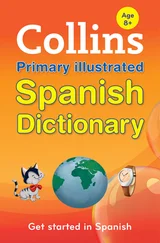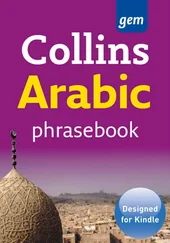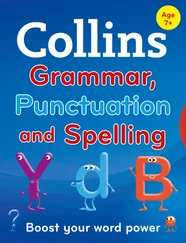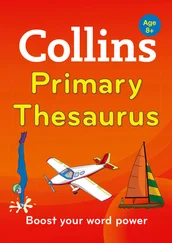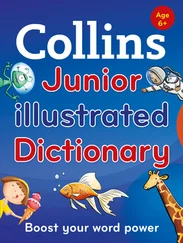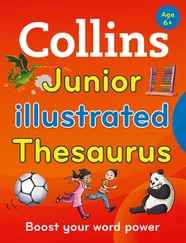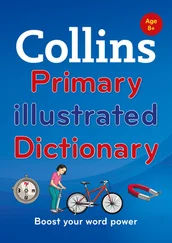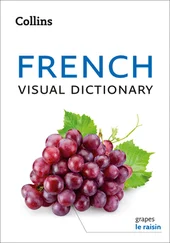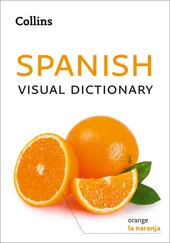20How many verbs are there in the sentence below? What are they? School starts at 9.00 and finishes at 3.30.
Some words have an adjectivemeaning and a verbmeaning. The different meanings have different translations in French.
clean
clean can be an adjective or a verb.
AADJECTIVE
propre a clean shirtune chemise propre
BVERB
nettoyer Clean the board please!Nettoie le tableau s’il te plaît!
21If you want to ask for ‘a clean glass’, how do you know that propreis the translation, not nettoyer?
Some words have a nounmeaning and a verbmeaning.
rain
rain can be a noun or a verb.
ANOUN
la pluie fem in the rainsous la pluie
BVERB
pleuvoir It’s going to rain.Il va pleuvoir. It rains a lot here.Il pleut beaucoup par ici.
It’s raining.Il pleut.
22Is la pluiea noun or a verb?
23Why is It rains a lot here.in part B?
Learn useful phrases
In the dictionary you’ll see phrases that are especially important in orange boxes. Try to learn these when you come across them, and you’ll soon know lots of useful things to say in French.
What time is it?Quelle heure est-il? It’s lunch time.C’est l’heure du déjeuner. How many times?Combien de fois?
Find out interesting things about life in France
There are also boxes which tell you about French customs, and about differences between life in France and Britain.
Did you know…?
In France, Easter eggs are said to be brought by the Easter bells or cloches de Pâques which fly from Rome and drop them in people’s gardens.
Even more words
At school you will learn to talk about subjects such as the time and the weather, your family, your pets, and your clothes. The most important words for talking about these subjects are shown in the dictionary itself, and even more words are given in Language Plus, the supplement in the middle part of the dictionary. Have a look!
Answer key
1demain and bonbon
2the French side; French words on it; French-English written at the side of the page.
3fire → fish
4It’s the last word on page 411.
5first
6Chantal, Hélène, Jean-Marie, Luc, Pierre, Sophie
7Harry – because ‘a’ comes before ‘e’
8Friday comes first and Wednesday comes last.
9because the second letter of Thursday is ‘h’, which comes before ‘u’, the second letter of Tuesday
10Friday, Monday, Thursday, Tuesday, Saturday, Sunday, Wednesday
11June
12correspondant
13animaux
14un ballon – the clue is in the example: un ballon de football
154 – car, tyre, dent, door
162 – brown, blue
17bonbon – a sweet is a noun, it means candy; the example helps too
182 – quietly, happily; they both end in -ly
19dur
202 – starts, finishes
21because clean has an adjective meaning in this sentence; the example helps too
22a noun
23because it’s a verb
French – English
aVERB  see avoir
see avoir
Language tip
Don’t confuse a with the preposition à.
1 has
Elle a beaucoup d’amis.
She has lots of friends.
Language tip
Sometimes a is used to show that something has happened in the past.
Il a joué au football.He played football.
2 is
Il a neuf ans.
He is nine years old.
il y athere is/there are
Language tip
il y a has two translations. Look at the examples.
Il y a un bon film à la télé.There’s a good film on TV. Il y a beaucoup de monde.There are lots of people.
Language tip
il y a can also mean ago.
Elle est partie il y a dix minutes.She left ten minutes ago.
Qu’est-ce qu’il y a?What’s the matter?
àPREPOSITION
Language tip
Don’t confuse à with the verb form a. See also au (= à + le) and aux (= à + les).
1 at
Je suis à la maison.
I am at home.
Je finis à quatre heures.
I finish at 4 o’clock.
2 in
Il est à Paris.
He is in Paris.
Elle habite au Portugal.
She lives in Portugal.
Mes grands-parents habitent à la campagne.
My grandparents live in the country.
au printemps
in the spring
au mois de juin
in June
3 to
Je vais à Paris.
I’m going to Paris.
Elle va au Portugal.
She’s going to Portugal.
Cet été je vais à la campagne.
I’m going to the country this summer.
Il l’a donné à son frère.He gave it to his brother. Je n’ai rien à faire.I’ve got nothing to do. Ce livre est à Paul.This book is Paul’s.
4 by
Il est arrivé à bicyclette.He arrived by bicycle. à piedon foot Je vais à l’école à pied.I walk to school. à … d’ici… from here C’est à dix kilomètres d’ici.It’s 10 kilometres from here. … à l’heure… an hour cent kilomètres à l’heure100 kilometres an hour À samedi!See you on Saturday! À tout à l’heure!See you later!
À bientôt!See you soon! À demain!See you tomorrow!
abandonnerVERB
1 to abandon
2 to give up
Je veux abandonner la natation.
I want to give up swimming.
l’ abeilleFEM NOUN
Читать дальше
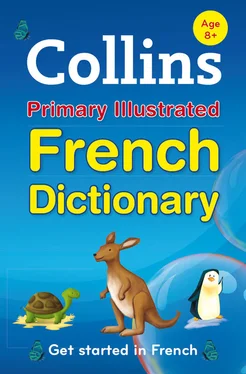
 see avoir
see avoir